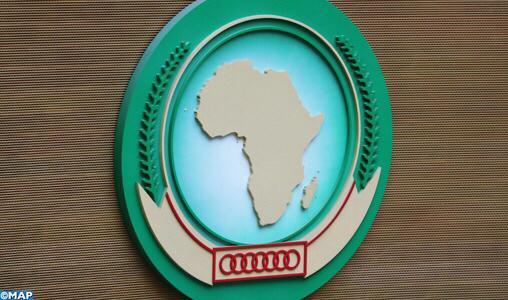Food security has been an enduring challenge for many African countries due to a variety of factors such as climate change, limited access to modern agricultural technologies, inadequate infrastructure, and political instability. Recognizing the urgency of addressing this issue, the African Union (AU) has established food security objectives to promote sustainable, resilient, and inclusive agricultural systems. This essay aims to assess the progress made by the AU in achieving its food security objectives, examining the interventions implemented, successes achieved, and areas where further improvement is required.
Insights:
1. AU's Policy and Strategic Framework: The AU has developed several policies and frameworks to tackle food security, notably the Comprehensive Africa Agriculture Development Programme (CAADP) and the Malabo Declaration. CAADP aims to improve agricultural productivity and promote food security while the Malabo Declaration sets targets to be achieved by 2025, including doubling productivity, halving post-harvest losses, and tripling intra-African trade in agricultural goods.
2. Investment in Agriculture: One of the critical aspects of ensuring food security is investment in agriculture. The AU recognized this and launched initiatives like the African Agriculture Fund, supported by the African Development Bank, to finance agricultural projects in member states. Furthermore, the creation of the Africa Food Security Initiative (AFSI) has attracted significant investments from both internal and external sources, which have contributed to boosting agricultural productivity.
3. Enhanced Collaboration and Regional Integration: Recognizing that food security issues go beyond national borders, the AU has placed emphasis on strengthening collaboration and regional integration. Efforts such as the Continental Free Trade Area (AfCFTA) aim to remove trade barriers and promote agricultural trade among member countries. Regional economic communities, such as the East African Community and the Economic Community of West African States, have also taken steps to harmonize policies and improve cross-border agricultural trade.
4. Resilience to Climate Change: Climate change poses a significant threat to food security in Africa. The AU has undertaken various initiatives to build resilience to climate change, including the promotion of sustainable agricultural practices, agroforestry, and the development of climate-smart agriculture. Additionally, the establishment of the African Risk Capacity has strengthened African countries' ability to respond to climate-related disasters.
5. Encouraging Smallholder Farmers: Smallholder farmers play a crucial role in food production, and empowering them is vital for achieving food security. The AU has placed special emphasis on supporting smallholder farmers through initiatives like the Pan African Farmers' Organization (PAFO) and the Africa Solidarity Trust Fund, which provide funding, training, and capacity building to small-scale producers. These initiatives have helped improve access to markets, finance, and technology for smallholder farmers, leading to increased productivity and livelihoods.
Successes and Key Achievements: - Increased agricultural productivity in several African countries, particularly in regions where interventions have been implemented effectively.
- Strong commitment from member states, as shown through increased public and private investments in agriculture.
- Improved coordination and collaboration among African countries, leading to reduced trade barriers and increased intra-African agricultural trade.
- Adoption of innovative and sustainable practices, such as conservation agriculture, agroforestry, and the use of climate-smart technologies.
- The AU has successfully mobilized international support through partnerships with organizations such as the Food and Agriculture Organization (FAO), the World Bank, and the International Fund for Agricultural Development (IFAD).
Challenges and Areas for Improvement: - Slow implementation of policies and frameworks at the national level due to limited institutional capacity and political will.
- Insufficient investment in agriculture, particularly in the context of climate change adaptation and mitigation.
- Inadequate attention to the needs and constraints faced by women and marginalized groups within the agricultural sector.
- Insufficient access to finance and markets for smallholder farmers, limiting their ability to participate in value chains and earn sustainable incomes.
- Limited awareness and understanding of the importance of food security among the general population, which impedes efforts to mobilize support and resources.
Conclusion: While significant progress has been made in addressing food security in Africa, the AU's journey towards achieving its objectives is still ongoing. The AU's policies, strategic frameworks, and collaboration initiatives have undoubtedly contributed to improved agricultural productivity, resilience to climate change, and increased trade in agricultural goods. However, challenges such as poor implementation, inadequate investment, and limited support for smallholder farmers remain. Concerted efforts are required at national, regional, and continental levels to overcome these challenges and ensure sustainable food security for Africa's growing population.
By: Dr Christian Sewordor Mensah, Executive Director, African Center for Business Incubation
Latest Stories
-
Queenmother calls on President-elect Mahama to appoint more women in his government
4 minutes -
Atletico Madrid beat Barcelona to go top of La Liga
22 minutes -
Usyk breaks Fury’s heart with points win in rematch
24 minutes -
Ghana-Russia Centre to run Russian language courses in Ghana
6 hours -
The Hidden Costs of Hunger: How food insecurity undermines mental and physical health in the U.S.
6 hours -
18plus4NDC marks 3rd anniversary with victory celebration in Accra
9 hours -
CREMA workshop highlights collaborative efforts to sustain Akata Lagoon
9 hours -
2024/25 Ghana League: Heart of Lions remain top with win over Basake Holy Stars
10 hours -
Black Queens: Nora Hauptle shares cryptic WAFCON preparation message amid future uncertainty
11 hours -
Re-declaration of parliamentary results affront to our democracy – Joyce Bawah
11 hours -
GPL 2024/25: Vision FC score late to deny Young Apostles third home win
11 hours -
Enhancing community initiatives for coastal resilience: Insights from Keta Lagoon Complex Ramsar Site Workshop
11 hours -
Family Health University College earns a Presidential Charter
11 hours -
GPL 2024/25: Bibiani GoldStars beat Nsoatreman to keep title race alive
11 hours -
GPL 2024/25 Bechem United keep title hopes alive with narrow win over FC Samartex
12 hours

